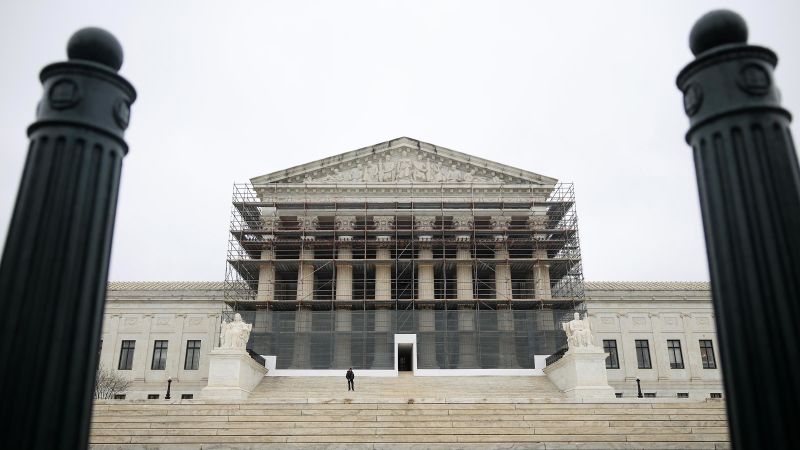CNN
—
The Supreme Court signaled Tuesday that it will revive a lawsuit from a suburban Atlanta family that was mistakenly held at gunpoint in their bedroom after the FBI accidentally conducted a predawn raid at the wrong address.
After about an hour of oral argument, it seemed clear that conservative and liberal justices were prepared to send the case back to a federal appeals court that barred the suit from moving forward. That would represent a narrow win, at least, for the family.
Curtrina Martin, her partner and her then-7-year-old son were startled awake in 2017 when a six-agent SWAT team – believing that they were targeting the home of a gang member – smashed her front door with a battering ram, detonated a flashbang grenade and rushed in.
“You might look at the address of the house before you knock down the door,” an incredulous Justice Neil Gorsuch told the lawyer representing the Justice Department. “How about making sure you’re on the right street? Just the right street? Checking the street sign? Is that, you know, asking too much?”
Martin’s lawyers said her address was “clearly visible” on her mailbox.
At issue for the Supreme Court is whether the family may sue the government for damages. In 1974, Congress expanded the ability of Americans to sue federal law enforcement agents following other high-profile raids at the wrong house. One of the questions for the justices was whether that expansion should apply in Martin’s case.
The federal government argued in part that it should not apply because federal law bars such suits when a federal employee is exercising discretion in carrying out their work. In this case, the government argued that the agents had to exercise discretion in how they confirmed they were at the correct house.
“We understand the discretion here to be the discretion as to how to identify the target of a search warrant,” Frederick Liu, arguing for the Justice Department, told the justices.
Liu said the agents had to make decisions “filled with policy considerations” before carrying out the raid that had to do with “efficiency” and “operational security.” The FBI didn’t want to delay the raid, he said, because it was carrying out several other searches simultaneously.
But that argument drew skepticism from several of the justices.
“I don’t understand how the act of going into a wrong house can be discretionary,” said Justice Sonia Sotomayor, the court’s senior liberal.
Even though the court seemed prepared to send Martin’s case back to the 11th US Circuit Court of Appeals for further review, it wasn’t clear whether there was a majority for some of the much broader arguments she was making that could open the federal government up to more litigation. Several justices, including Gorsuch, seemed to be leaning toward a decision that would be limited to Martin’s claim without having sweeping implications for future cases.
Patrick Jaicomo, who argued on behalf of Martin, said the agents clearly had no discretion to wind up at the wrong house.
“The preparation is kind of immaterial to the ultimate result here,” said Jaicomo, a senior attorney with the Institute for Justice. “If you really, really meant to drop the pizza off at the right address, it doesn’t matter. You still need to give a refund if you drop it off at the wrong address.”
CNN’s Devan Cole contributed to this report.

